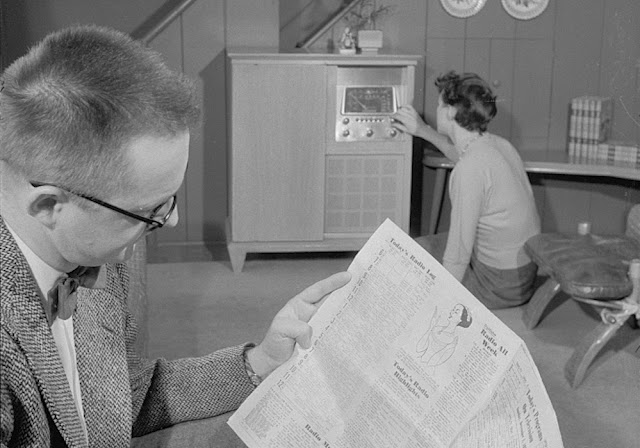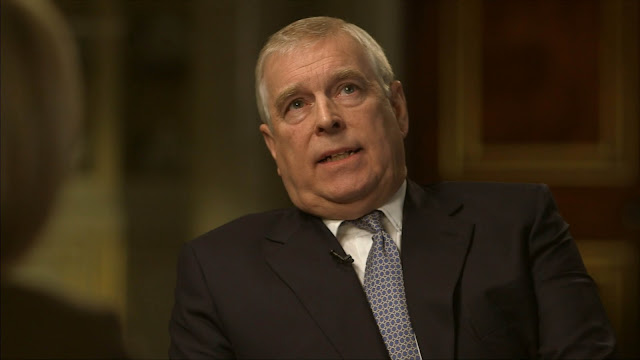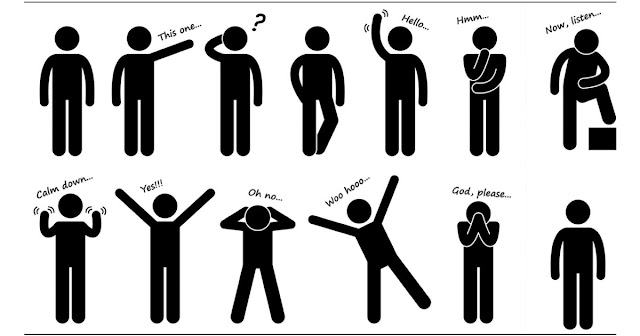Here is the greatest scams in history:
Nigerian Prince: The 5 Biggest Scams In History
Can you be scammed?
Too Smart To Be Scammed? Try This Online Test To Find Out | Digital Trends
----------------------------------------
In this country we used to have something called the Fairness Doctrine. The fairness doctrine of the United States Federal Communications Commission (FCC), introduced in 1949, was a policy that required the holders of broadcast licenses both to present controversial issues of public importance and to do so in a manner that fairly reflected differing viewpoints.
Paraphrased: issued by the FCC in 1949, the Fairness Doctrine required broadcasters to give equal time for differing views on television and radio. That was until members of the Reagan administration abolished it in 1985.
"
"Lawmakers became concerned that the monopoly audience control of the three main networks, NBC, ABC and CBS, could misuse their broadcast licenses to set a biased public agenda.
The Fairness Doctrine mandated broadcast networks devote time to contrasting views on issues of public importance. Congress backed the policy in 1954 and by the 1970s the FCC called the doctrine the “single most important requirement of operation in the public interest – the sine qua non for grant of a renewal of license.
The Supreme Court upheld the doctrine. In 1969’s Red Lion Broadcasting Co. v. FCC, journalist Fred Cook sued a Pennsylvania Christian Crusade radio program after a radio host attacked him on air. In a unanimous decision, the Supreme Court upheld Cook's right to an on-air response under the Fairness Doctrine, arguing that nothing in the First Amendment gives a broadcast license holder the exclusive right to the airwaves they operate on.
The doctrine stayed in effect, and was enforced until the Reagan Administration. In 1985, under FCC Chairman, Mark S. Fowler, a communications attorney who had served on Ronald Reagan's presidential campaign staff in 1976 and 1980, the FCC released a report stating that the doctrine hurt the public interest and violated free speech rights guaranteed by the First Amendment."
What do you think about the trustworthiness of this article?
What about the source? Does that make it more biased or less neutral? What are some reasons that striking down the requirement could be viewed as a good thing? What would Reagan's critics say?
Here's what the article goes on to say:
"Fowler began rolling the application of the doctrine back during Reagan's second term - despite complaints from some in the Administration that it was all that kept broadcast journalists from thoroughly lambasting Reagan's policies on air. In 1987, the FCC panel, under new chairman Dennis Patrick, repealed the Fairness Doctrine altogether with a 4-0 vote."
What could the results of this be? What do you think of the following video?
What can we tell about a writer's tone in a piece? What about word choice? The way information is presented, order of importance and what is left out? Something to consider moving on.
History is replete with distortion, exaggeration, myths, and selective editing.
This an interesting website for going down rabbit holes:
We're trying to figure out did 300 Spartan warriors really hold off a Persian army of 100,000?
Speaking of going down a rabbit hole, this is a great site for trying to tweaker out a unbiased opinion:
And here is a good critical thinking exercise:
https://www.foxnews.com/us/michigan-sheriff-department-gas-prices-non-urgent-calls-by-phone
After skimming all 3 short articles, What is probably the truth?
Howard Zinn published a book in the 1980 called 'A People's History of the United States' in which many of history's sacred cows are lead up the ramp for stripping. people's History was most influential to an entire generation and has been used in many classrooms with millions of copies sold.
Here's an excerpt:
"What struck me as I began to study history was how nationalist fervor--inculcated from childhood on by pledges of allegiance, national anthems, flags waving and rhetoric blowing--permeated the educational systems of all countries, including our own. I wonder now how the foreign policies of the United States would look if we wiped out the national boundaries of the world, at least in our minds, and thought of all children everywhere as our own. Then we could never drop an atomic bomb on Hiroshima, or napalm on Vietnam, or wage war anywhere, because wars, especially in our time, are always wars against children, indeed our children."
Zi. Zinn goes on to say that Supreme Emperor Hiro was ready to surrender and that the dropping of the atomic bomb was completely unnecessary.
Some have refuted claims made in the book, including teachers at Stanford.
From Stanford Report,
"Wineburg, one of the world's top researchers in the field of history education, raises larger issues about how history should be taught.He says that Zinn's desire to cast a light on what he saw as historic injustice was a crusade built on secondary sources of questionable provenance, omission of exculpatory evidence, leading questions and shaky connections between evidence and conclusions."
What do you think about the expression 'history is written by the winners?'
Wineburg continues to say,
"Zinn roots his argument that the Japanese were prepared to surrender before the United States dropped the atomic bomb on a diplomatic cable from the Japanese to the Russians, supposedly signaling a willingness to capitulate. Wineburg writes that Zinn not only excludes the responses to the cable, but also that he fails in the later editions of the book to incorporate the vast new scholarship that emerged after the death of the Emperor Hirohito with the publication of memoirs and new availability of public records, all of which support the position of Japan's resolve to fight to the last.
History, Wineburg notes, is messy. And the most responsible thing for educators to do is to leave elbowroom for the mess. "History as truth, issued from the left or the right, abhors shades of gray," Wineburg writes, adding, "Such a history atrophies our tolerance for complexity. It makes us allergic to exceptions to the rule. Worst of all it depletes the moral courage we need to revise our beliefs in the face of new evidence.
"It insures ultimately that tomorrow we will think exactly as we thought yesterday – and the day before and the day before that."
What do you think the truth is? How much does it matter what actually happened? Why is it that things in the past seem less controversial? Can you think of anything in the far distant past that is still controversial? How long does something take to stop being inflammatory? Are there somethings that will always be polarizing? Would you agree that truth is in the middle or not always?
The way some people try to find the truth is ask themselves who stands to benefit, what would the motivation be, and who has the power to cover it up?
What about fact-checkers? While most people judge fact-checking to be for the greater good, there is even some controversy swirling around their neutrality.
From the American Thinker:
"In a court filing responding to a lawsuit filed by John Stossel claiming that he was defamed by a "fact check" Facebook used to label a video by him as "misleading," Meta's attorneys assert that the "fact check" was an "opinion," not an actual check of facts and declaration of facts. Under libel law, opinions are protected from liability for libel.
In America we have the Constitution and the Bill of Rights, which was ratified in 1791. Based on Natural Law, The Declaration of Independence and U.S. Constitution makes the argument that our rights come from the creator and government sole purpose is to protect those rights. Moreover, the 1st Amendment guarantees freedom of speech: Congress shall make no law respecting an establishment of religion, or prohibiting the free exercise thereof; or abridging the freedom of speech, or of the press; or the right of the people peaceably to assemble, and to petition the Government for a redress of grievances.
Is the Constitution outdated? Are all Amendments absolute? Is it okay to change them? Why would that be a gold or bad thing? Recently, companies have censored some topics on social media platforms, the argument was they are a company and they can do what they want, then Elon Musk bought Twitter and promised to make the algorithms public and reduce censorship. The argument became unrestricted free speech could lead the hate speech. What do you think of all this? If there is a line where do we draw it?
As long as the government didn't get involved in limiting speech there was no real conflict. Then the government got involved. To many the attempt to create a Disinformation Board reminded them of the Ministry of Truth from the novel 1984. Either because the Disinformation Board fell victim to misinformation or because it ran afoul of the 1st Amendment is up for debate but regardless it was put on pause.
Here Winston Smith reads from a banned book in Orwell's dystopian future world,
"The Ministry of Peace concerns itself with war, the Ministry of Truth with lies, the Ministry of Love with torture and the Ministry of Plenty with starvation. These contradictions are not accidental, nor do they result from from ordinary hypocrisy: they are deliberate exercises in doublethink."
– George Orwell, 1984
What are some examples of fake news having serious consequences?
https://www.pbs.org/newshour/science/real-consequences-fake-news-stories-brain-cant-ignore
What of what we have read today is biased? How could it be less so?
Some recent studies have stated that the average person now has an attention span of less than 8 seconds. Less than that of a goldfish? Do you think that's accurate? Why would someone misrepresent those numbers?
And that's in the news, what about what we can see with our own eyes?!
Some psychological reasons for bias:
Confirmation Bias:
https://en.m.wikipedia.org/wiki/Confirmation_bias
Cognitive Dissonance
https://en.m.wikipedia.org/wiki/Cognitive_dissonance
FOOTNOTES:
.png)


.jpeg)
.jpeg)
.jpeg)
.jpeg)
.jpeg)
.jpeg)
.jpeg)
.jpeg)























